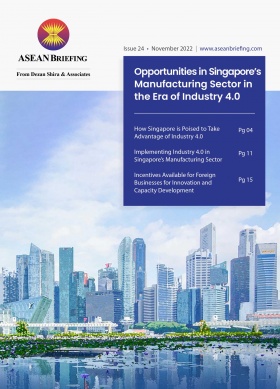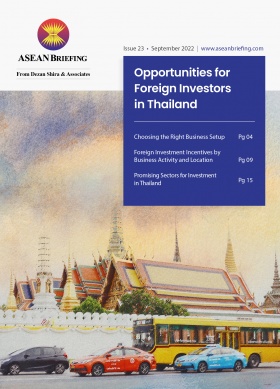An Overview of Swiss Investments in Indonesia
With Swiss investments already spreading across Southeast Asia, it comes as no surprise that Indonesia, a prominent member of ASEAN, has been a key focus for Swiss FDI.
Bilateral relations between Switzerland and Indonesia
Switzerland and Indonesia have enjoyed strong bilateral relations since the 1950s, and the two countries have worked together in several areas, including trade and investment. Over the years, the two countries have signed many agreements, including an Investment Promotion and Protection Agreement (IPPA) in 2009, and a cooperation agreement in 2017 to strengthen economic ties and promote investments.
The IPPA is aimed at promoting and protecting mutual investments between Switzerland and Indonesia, and it provides a legal framework for Swiss investors to protect their investments in Indonesia. The agreement is also designed to facilitate the flow of foreign investments between the two countries by providing a more secure environment for investment activities.
In addition to the IPPA, Switzerland, and Indonesia have signed a Double Taxation Avoidance Agreement (DTAA) to ensure that Swiss investors are not taxed twice on their investments in Indonesia. The DTAA also helps to create a more favorable investment climate for Swiss investors in Indonesia.
Swiss investments in Indonesia
Swiss investments in Indonesia have grown steadily over the past decade. According to the Indonesian Investment Coordinating Board, the country was the tenth-largest source of FDI in Indonesia with 118 projects valued at US$599 million, in 2021. This was dominated by investments of over US$542 million in Indonesia’s food industry, US$9.7 million in chemicals and pharmaceuticals, US$7.8 million in the forestry sector, and US$7.4 million in the fishery sector.
However, Swiss investments decreased in 2022 to a total of US$133 million, despite an increase in the number of projects to 564. The food sector was still the dominant investment destination for Swiss investors in 2022 with investments for this sector reaching US$94 million.
Swiss food and drink conglomerate Nestlé has been operating in Indonesia since 1971 and is a household name in the country. The company’s longevity is credited to its capacity to offer products that target Indonesia’s lower-income consumers, which make up some 60 percent of the country’s spending base. Further, the aspiring middle-class are pushing up demand for dairy by more than 10 percent annually, particularly for powdered milk products, which feature among Nestlé’s flagship products.
Future investments from Switzerland to Indonesia
Looking ahead, it is likely that the Swiss will continue to invest heavily in Indonesia. The country’s strategic location and vast resources make it an attractive destination for foreign investors, particularly Swiss investors.
In addition, the government of Indonesia has taken steps to make the country more attractive to foreign investors, such as by introducing several reforms aimed at improving the investment climate.
The country is looking at investments in more value-added projects, especially in the areas of downstream commodities, renewable energy, healthcare, manufacturing, and infrastructure. For instance, Indonesia wants to increase the contribution of its manufacturing sector to GDP from 20 percent to 25 percent by 2030 and transform the country into a manufacturing hub that rivals South Korea.
Now well into its second term, the Joko Widodo government aims to attract some US$400 billion on infrastructure projects until 2024. Further, given Indonesia’s large market size, the healthcare sector presents ample opportunities for Swiss businesses. Several hospital chains, such as Novartis and Roche, have already established themselves in Indonesia.
The Indonesian government’s spending on healthcare has skyrocketed since the implementation of the universal healthcare program in 2014, which is now the world’s largest, covering 246 million people. This has meant increasing demand for medical equipment, pharmaceuticals, and hospitals.
Besides opportunities emerging out of its upward market growth trajectory, Indonesia is also building a US$35 billion new capital city on the island of Borneo, named Nusantara.
The new capital will be a low-carbon superhub and will require soft and hard infrastructure ranging from highways, urban utilities, seaports, and airports, among others. Importantly, Nusantara aims to be a smart city that utilizes the internet of things that delivers solutions from energy conservation to traffic flows. This ambitious project will present massive opportunities for Swiss companies across a wide range of industries.
For Swiss investors, entering Indonesia and taking advantage of what the country has to offer requires having a long-term outlook. After all, with a population of close to 300 million, a competitive labor market, and rising incomes, it is not a market to be considered lightly.
For advice on competitive market entry strategy and doing business in Indonesia, feel free to reach out to our experts on the ground at Dezan Shira & Associates.
Webinar – Exploring Southeast Asia’s 2023 Outlook – Opportunities and Trends
Feb. 28, 2023 | 9:00am PST / 12pm EST
After seeing 5.5% growth in 2022, ASEAN is one of the fastest-growing regions in the world and is expected to outpace global growth this year as well. Join us to explore ASEAN’s 2023 outlook, including potential opportunities and noteworthy trends in this free webinar.
Join us in this free webinar!
About Us
ASEAN Briefing is produced by Dezan Shira & Associates. The firm assists foreign investors throughout Asia and maintains offices throughout ASEAN, including in Singapore, Hanoi, Ho Chi Minh City, and Da Nang in Vietnam, in addition to Jakarta, in Indonesia. We also have partner firms in Malaysia, the Philippines, and Thailand as well as our practices in China and India. Please contact us at asean@dezshira.com or visit our website at www.dezshira.com.
- Previous Article A Guide to Taxation in Indonesia
- Next Article Thailand Adopts Work from Home Bill: Implications for Employers







